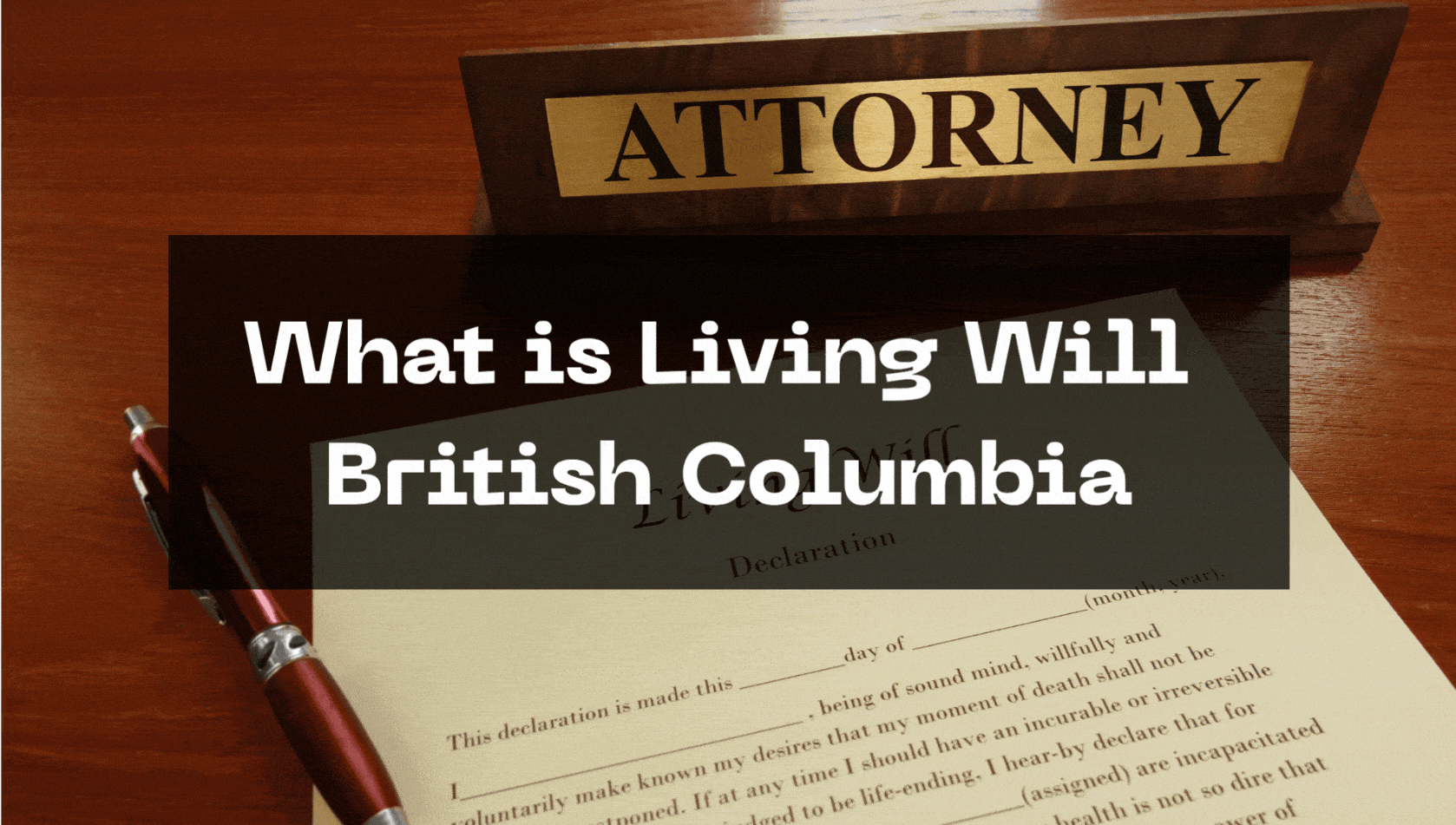Takeaways (TL;DR): How to Probate a Will in British Columbia
- Probate = Legal court process that confirms a will’s validity and authorizes the executor to manage the estate.
- Executor named in the will files a probate application in BC Supreme Court.
- Probate is often required if assets are solely in the deceased’s name (bank accounts, real estate, etc.).
- No probate needed for:
- Estates worth $25,000 or less
- Assets held in joint tenancy
- Accounts with named beneficiaries (like RRSPs, life insurance)
- Estates worth $25,000 or less
- Must send 21-day legal notice (Form P1) to heirs, beneficiaries, spouse, and others before applying.
- Required forms include:
- Fees:
- $0 if estate is $25K or under
- $200 filing fee + probate tax (0.6%–1.4%) for larger estates
- $0 if estate is $25K or under
- Probate approval takes 4–12 weeks, estate administration may take up to a year
- Once approved, the executor can:
- Collect estate assets
- Pay debts and taxes
- Distribute inheritance per the will
- Collect estate assets
- Executors must keep detailed records and notify creditors (who have 6 months to file claims).
- Mistakes or incomplete forms can cause delays. Legal advice is highly recommended.
- If there’s no will or no executor, apply for a Grant of Administration instead of probate.
Need help? Merchant Law Group assists BC executors and families with probate paperwork, legal filings, and estate settlement.
Probating a will in British Columbia means going to the Supreme Court to verify the will is valid and give the executor the authority to manage the estate. In BC, this court order is called a Representation Grant (also known as probate or an estate grant).
It’s a document-intensive legal process: you must prepare and file several official forms, plus the original will and other paperwork, with the BC Supreme Court estate registry.
If everything is in order, the court grants probate, confirming the executor can collect assets, pay debts, and distribute the estate.
Not every estate needs probate. If the total value of the estate is $25,000 or less, you usually don’t need to apply for probate.
Likewise, assets that pass outside the will (such as joint-tenancy property or accounts with named beneficiaries) generally don’t require probate.
For example, jointly owned bank accounts or life insurance policies with a beneficiary can transfer without a court order.
In practice, many banks and institutions will ask for probate (or a grant of administration) before releasing funds if assets are large or solely in the deceased’s name. If you’re unsure, it’s wise to get legal advice or check with the institution holding the assets.
Probate Step 1: Identify the Executor (and Alternatives)
The first step is to find the original will and see who is named as executor. The executor (or estate trustee) is the person appointed to carry out the will.
Under BC law, the executor files the probate application to obtain legal authority. If the named executor cannot act or has renounced the role, an alternate executor or another family member can apply to be appointed under an estate grant of administration. (Administration follows much the same process as probate, but it applies when there is no valid will or no executor.)
Tip: If the estate is small or joint/beneficiary assets cover everything, probate may not be required. Otherwise, plan to move ahead. As People’s Law School notes, this process essentially involves paperwork and waiting for the court to issue the grant of probate confirming your authority.
Probate Step 2: Notify Interested Parties (Form P1, 21-Day Notice)
Before you apply for probate, BC rules require you to notify key people of your intent. You must send a Notice of Proposed Application (Form P1) to:
- All executors and alternate executors named in the will
- All beneficiaries named in the will
- The spouse and children of the deceased (even if not named in the will)
- Potential heirs under BC intestacy law (i.e. anyone who would inherit if there was no will)
- Anyone with a legal interest (creditors, etc.)
- Nisga’a Lisims Government or Treaty First Nation, if applicable
- The Public Guardian & Trustee (for any minor or incapable adult beneficiaries)
This notice must be delivered at least 21 days before you file the probate application. This waiting period gives interested parties time to raise any objections. You can mail or personally deliver the P1 notice (saving proof of delivery). Keep a record of how and when you sent each notice.
Once you’ve given notice and 21 days have passed, you’re ready to file.
Probate Step 3: Gather Documents and Forms (Document-Intensive Stage)
Probate in BC is indeed document-intensive. You’ll need:
- The original will and the death certificate. (The original signed will must be filed with the court.)
- Court Forms: The key forms come from the Supreme Court Civil Rules Part 25 (Estates). These include:
- Form P2 – Submission for Estate Grant: This is the main form with details about the deceased and the estate.
- Form P3 or P4 – Affidavit of Applicant: A sworn statement by the executor. Use P3 for routine probate; use P4 if there are complex issues (e.g. a will contest or executor renunciation).
- Form P9 – Affidavit of Delivery: A sworn list of everyone you gave the Form P1 notice to, confirming delivery to each.
- Form P10 (and P11 if needed) – Affidavit of Assets and Liabilities: A full list of the deceased’s assets and debts. Form P10 is for BC residents; P11 is for non-residents with BC assets.
- Certificate of Wills Notice Search: You must apply to the BC Vital Statistics Agency for a search of the wills registry. They will issue a certificate stating whether any will has been filed previously. (If another will is found, you may need to file that or have it proved.) You file two copies of this certificate with your application.
- Payment of Fees: Prepare to pay probate fees when filing (see below).
You can download all forms from the BC Court Forms website. If you need help, BC courthouse libraries can help you fill them out. Complete the forms carefully to avoid delays. Incomplete or incorrect forms will be returned by the court for correction, adding weeks or months.
Probate Step 4: Filing the Application and Fees
When the 21-day notice period is over and your forms are ready, file them at a Supreme Court probate registry in BC. You will submit:
- The completed forms (P2, affidavits P3/P4, P9, P10/P11, etc.)
- The original will (signed by deceased)
- Two copies of the Wills Notice Search certificate
- The required filing fee and probate tax (see Costs below)
The court clerk will review your submission. If everything is in order and fees are paid, the court will issue the probate grant (Representation Grant). This is the court’s official authorization allowing the executor to manage the estate.
If you have hired a lawyer, they can file on your behalf. Even if you do it yourself, consider at least a brief consult with an estates lawyer, because probate involves strict rules. Merchant Law Group’s experienced Wills & Estates team can assist with the paperwork or answer questions. See Contact if you need help.
Probate Step 5: Wait for the Grant of Probate
After filing, there is a processing period. In BC, courts typically take a few weeks to several months to issue the grant of probate, depending on the registry’s workload. (In Vancouver, it might be 6-8 weeks; in smaller communities it could be faster or slower.)
Remember, this is just the time to get the court’s approval. The entire estate administration – collecting assets, paying debts, and distributing inheritance – can take longer (often 8-12 months in total).
During this time, the executor must also:
- Notify known creditors (send them notice to make claims). BC law gives creditors six months to come forward.
- Keep good records of estate expenses and income.
- Prepare to transfer assets to beneficiaries once the grant is received.
Probate Step 6: Administer the Estate and Distribute Assets
Once the court grants probate (or administration), the executor has legal authority to act. You will use the representation grant to:
- Collect assets: Gather bank accounts, stock certificates, title deeds, etc. Present the grant to financial institutions and the Land Title Office to transfer title. (For example, land titled only in the deceased’s name can only be transferred with probate.)
- Pay debts and taxes: Use estate funds to pay outstanding bills, final income tax returns, and any creditor claims. You may publish notices to creditors or use the wills registry notice to limit claims.
- Distribute the estate: Follow the will’s instructions to give assets to beneficiaries. Provide final accounting records to beneficiaries so they can see how funds were handled.
At the end, the estate is settled and probate is complete. If disputes arose (e.g. a will contest), the executor must address them possibly through court. But if everything was done properly, the probate grant protects the executor from beneficiary challenges, showing the will was verified by the court.
Legal Requirements and Tips (BC-Specific)
- Wills Act & WESA: BC’s Wills, Estates and Succession Act (WESA) and the Supreme Court Civil Rules govern probate. For example, WESA specifies who can inherit if no will exists, and Rule 25-3 requires the executor to wait 21 days after notice before applying.
- Executor’s Duties: Under BC law, executors are fiduciaries. They must act honestly and keep good records of the estate’s assets and transactions. (If you make mistakes like paying debts incorrectly, you could be held personally liable.)
- Time Limits: BC law (WESA) expects executors to act promptly. If you delay probate or abandonment, beneficiaries can apply to the court to intervene.
- No Probate vs. Administration: Remember that if there is no valid will or the named executor refuses to act, you don’t do “probate”; you apply for a Grant of Administration instead, which is similar. People’s Law explains that a grant of administration replaces probate when there is no will or executor.
- Small Estates: If the estate is small and probate is not needed, you may still have to provide a death certificate to institutions. Always confirm directly with banks or asset holders what they require.
Consult a Lawyer: Probate can be complex. Although you can apply on your own, many executors hire a lawyer to handle filings or to review paperwork. Merchant Law Group’s Wills & Estates lawyers are available to assist BC families with probate and estate matters.
Costs to Probate a Will in BC
When you apply for probate in BC, you pay an estate administration tax (probate fee) only if the estate is worth more than $25,000. The fee is calculated on the total gross value of the estate’s assets in BC. As of 2024, the rates are:
- $25,000 or less: $0 (no probate fee)
- $25,001 – $50,000: $6 per $1,000 of estate value (0.6%)
- Above $50,000: $14 per $1,000 of estate value (1.4%)
For example, a $100,000 estate pays 0.6% on the portion from $25-50K and 1.4% on the portion above $50K, totaling $1,270 in probate tax.
In addition, the court filing fee is $200 for any estate over $25,000 (no filing fee for $25K or under). These probate fees are paid from estate funds, not out of your own pocket.
Expect some other costs, such as: obtaining death certificates, paying for the wills notice search (a small fee), notarizing affidavits, and possibly advertising the notice of probate (if you do). Lawyer fees are extra if you hire help. Some lawyers charge a percentage of the estate, others an hourly or flat fee. All told, legal and administrative costs can add up, so budget accordingly.
Frequently Asked Questions
A) Do I need a lawyer to probate a will in BC?
Ans: No, you’re not legally required to hire a lawyer, and you can file the forms yourself. However, the process is document-intensive and errors can cause costly delays. Many executors consult a wills & estates lawyer, especially for larger or more complicated estates. Merchant Law Group’s Wills & Estates team offers free consultations to help you understand the process. Even clicklaw advises getting legal help if you’re unsure.
B) How long does probate take in BC?
Ans: Probate can take many months. In BC, even a straightforward probate might take several months from filing to grant. Many estates take 8-12 months or up to a year to fully settle. After you submit your application, the court might take 1-3 months (or more) to review and issue the grant. Factors like incomplete forms, court backlog, or disputes can slow things down. As one report notes, estates typically finish probate within 8;12 months after the grant is issued. Planning for up to a year is realistic in BC.
C) What are the costs to probate a will in BC?
Ans: See the Costs section above. Briefly: estates under $25,000 owe no probate tax; otherwise the fee is $0.6% on $25-50K plus 1.4% on amounts over $50K. There’s also a $200 filing fee for estates over $25K. These go to the government. You’ll also cover any lawyer fees, search fees, and misc. costs.
D) Is probate always required in BC?
Ans: No. Probate is only required if someone (like a bank or the land title office) demands it to access estate assets. If everything is jointly owned or under $25K, it may not be needed. For real property held in joint tenancy, the title automatically passes to the surviving owner without probate. Similarly, assets with named beneficiaries (RRSPs, life insurance, etc.) bypass the estate. Always check with institutions: they decide what proof they need.
E) What if there’s no will or no executor?
Ans: If someone dies without a will (intestate), no probate in the usual sense occurs. Instead, an eligible person applies for a Grant of Administration to act as estate trustee. The paperwork is similar, but intestacy rules (WESA) dictate who inherits. Likewise, if the will’s named executor refuses to act or is unable, another person can apply for a grant of administration. In practice, the court just issues a Grant of Administration rather than Probate, but the notification and forms process is almost the same.
F) What documents are required for probate in BC?
Ans: You will need (at minimum) the original will, death certificate, and several court forms: Form P1 (Notice of Proposed Application), Form P2 (Submission for Estate Grant), an Affidavit of Applicant (P3 or P4), and Form P10 (Affidavit of Assets and Liabilities). You also need Form P9 (affidavit confirming delivery of Form P1 to everyone) and a certificate of wills notice search from Vital Statistics. In short, plan to complete and submit: P1, P2, P3/P4, P9, P10 (or P11), plus supporting documents. (The Supreme Court Civil Rules; Part 25; list all the required forms.) People’s Law School and the BC Courthouse Libraries have detailed guides on filling them out.
G) Do joint accounts or beneficiaries need probate?
Ans: Generally no. Assets held in joint tenancy transfer automatically to the surviving co-owner without probate. Similarly, assets like life insurance or RRSPs that have named beneficiaries pass directly to those beneficiaries. In those cases you still need the death certificate to claim the asset, but usually no court order is required. In fact, many couples structure their estate with joint ownership or beneficiaries specifically to avoid the probate process.
H) What if the will is contested?
Ans: If someone contests the will (for example, a beneficiary questions its validity), they must file a caveat or challenge in court. This can delay probate significantly. If you suspect any challenge (undue influence, lack of capacity, improper execution), consider using Form P4 (Affidavit of Applicant with Will Issues) and seek legal advice. Challenges are serious, so giving proper notice (Form P1) and following all legal requirements can help protect against surprises.
I) What if I make a mistake in the forms?
Ans: Minor errors in your application can be fixed by the court (they may order you to amend or refile). However, major mistakes may invalidate the application and cost more time and money. Double-check figures, dates, and names. Use the BC Supreme Court Civil Forms directly, and consider getting help to review everything before filing.






